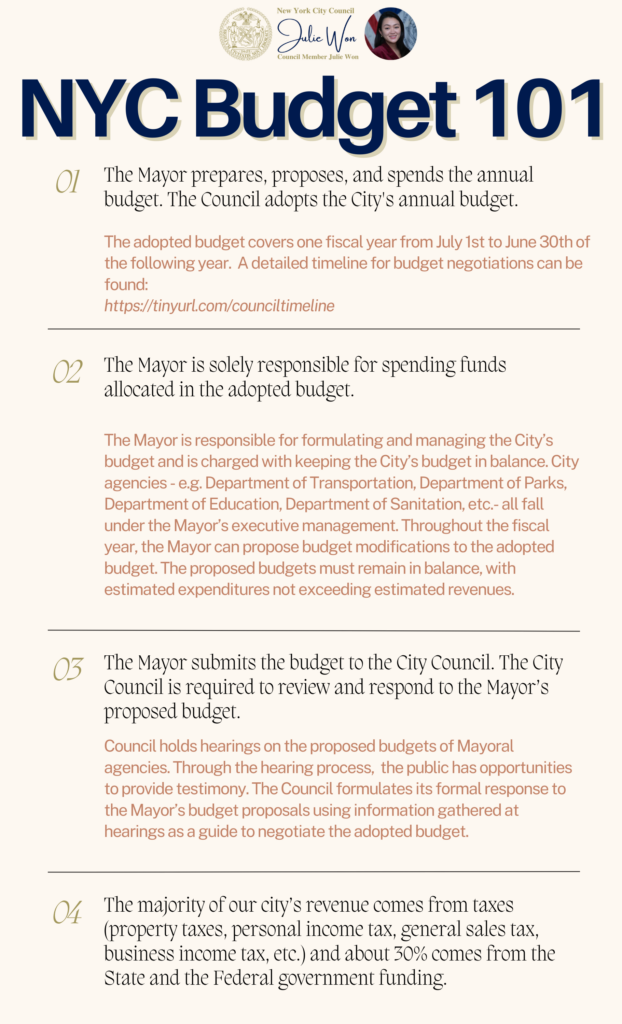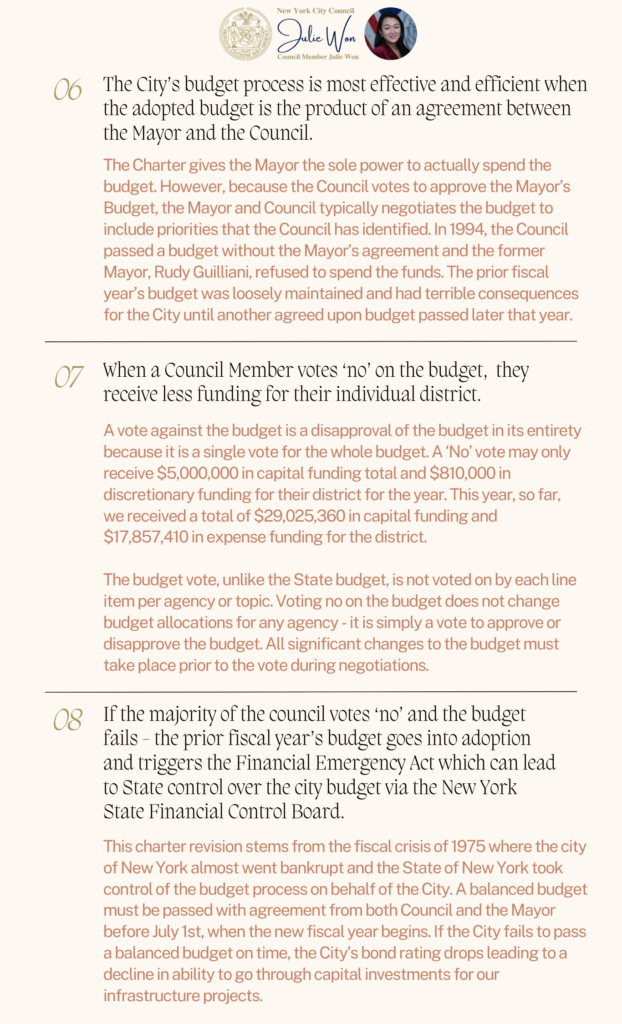Every day from January to June, my colleagues and I fought to restore harmful funding cuts proposed by the Mayor in the Executive Budget while fighting for key funding increases for Council priorities including education, libraries, cultural institutions, affordable housing, CUNY, parks, and other vital services.
Affordable housing is my top priority, and it is reflected in our FY’ 25 budget. This fiscal year, we have a record of $2 billion in new capital funding for maintaining existing and building new affordable housing for both renters and homeowners. Through this capital investment, we are paving a pathway for homeownership. The Mayor’s Executive budget originally included $0 for new capital funding for affordable housing which would have led to a decline in production of affordable housing.
Due to the Council’s advocacy and my role as a member of the Budget Negotiation Team, I helped to secure housing wins in the FY ‘25 budget including:
- $2 billion in capital funding for new affordable housing
- $136.1 million for extremely low and very low-income housing
- $138.9 million for supportive housing
- $257.8 million for low-income rentals
- $614.9 million for City FHEPS vouchers
These investments will ensure that the City is building housing at the deepest affordability levels that is equitably distributed across our city and accessible to more of our neighbors.
Budget wins for early childhood education and K-12 include:
- $293 million to restore and invest in early childhood education
- $418 million to support our schools citywide
The investments and restorations in education will ensure that our children can go to top-quality early childhood programs and schools that are in our neighborhoods.
In January the Mayor proposed an executive budget of $109.4 billion budget, and through the Council’s advocacy, we were able to increase the budget by $3 billion, bringing us to an adopted budget of $112.4 billion.
This budget would not be possible without the advocacy of our neighbors who rallied against cuts to funding, testified at hearings, and made their voices heard to invest in and protect these essential services.
There is still so much work to do to ensure that the budget reflects the priorities and needs of our most vulnerable New Yorkers. Since the City’s budget is a working document that will change over the fiscal year, we will continue to work tirelessly until all of our city’s needs are met.
During each year’s budget process, the Council and its Members assign discretionary funds to not-for-profit organizations and agency initiatives to meet needs and fill gaps in City Agency services and local projects. Those allocations are published on “Schedule C.”
You can also check the Council’s online tracker for expense funding here or capital funding here to look up budget allocations.
Read on below to learn more about this year’s budget. Click the hyperlink below to read the topic of interest:
NYC Budget 101
Citywide Budget Wins for FY ’25


